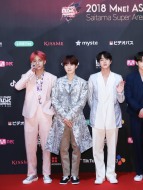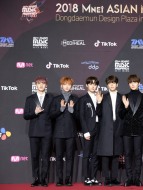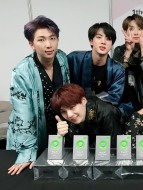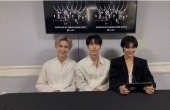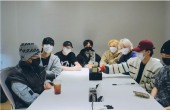Home > TV
Is Korean TV racist? 3 cases of shows trying to be funny and ending up offensive
By Yoon Min-sik
“Man Who Dies to Live,” a recently launched TV drama on MBC, was the latest in a series of Korean TV shows to have inadvertently offended non-Korean viewers.
It finally addressed the issue Sunday by apologizing and vowing to be more considerate in the future.
Here are a few cases in Korean entertainment in which people tried to be funny, but ended up being inconsiderate and offensive.
 |
| (MBC) |
“Man Who Dies to Live” depicts Arab world - 2017
In a very poor effort to depict what was supposed to resemble the Arab world, the show had a woman wearing both a bikini and a hijab appear, along with an advertisement displaying “buy one princess, get two for free.”
Despite the show‘s disclaimer that it only depicted the fictional kingdom of Bodantia, the episode touched off controversy about its insensitivity of another culture.
Mamamoo’s blackface controversy - 2017
Earlier in the year, K-pop act Mamamoo issued a public apology for its parody video in which the band sought to portray African-Americans.
 |
In a parody music video of Mark Ronson and Bruno Mars’ “Uptown Funk” the bandmates painted their faces black -- obviously a big no-no considering the history of racial discrimination African-Americans have faced for decades.
Many consider the theatrical makeup of blackface itself taboo, as it was widely used in performances such as minstrel shows in the early and mid-19th century to depict a parody of black people.
'Impertinent' Muhammad - 2013
Comedy show “Gag Concert” in 2013 was embroiled in an Islamic-related controversy concerning the name of a character that appeared on it.
 |
| (KBS) |
The show decided to change the name of “Mu-eom-ha-da-du,” which sounds like the Islamic prophet Muhammad when read in Korean language. The parody name means "You are impertinent" in Korean.
KBS, on which the show aired, said it decided to change the name in consideration of believers of Islam.
By Yoon Min-sik (minsikyoon@heraldcorp.com)










